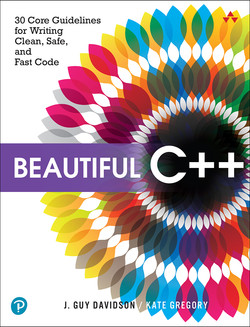SObjectizer Tales – 4. Handling commands--Marco Arena
 A new episode of the series about SObjectizer and message passing:
A new episode of the series about SObjectizer and message passing:
SObjectizer Tales – 4. Handling commands
by Marco Arena
From the article:
What if we could seamlessly command the device to start and stop its acquisition with the wave of our virtual wand?

 In our previous discussion, we optimized a task-based while loop by eliminating nested shared pointers, instead requiring all the state to reside inside a caller-provided
In our previous discussion, we optimized a task-based while loop by eliminating nested shared pointers, instead requiring all the state to reside inside a caller-provided  This is a book review of “Beautiful C++,” written by two well-known C++ experts and educators: Kate Gregory and Guy Davidson. The book’s unique style gives us a valuable perspective on effective and safe C++ code.
This is a book review of “Beautiful C++,” written by two well-known C++ experts and educators: Kate Gregory and Guy Davidson. The book’s unique style gives us a valuable perspective on effective and safe C++ code. A new episode of the series about SObjectizer and message passing:
A new episode of the series about SObjectizer and message passing: